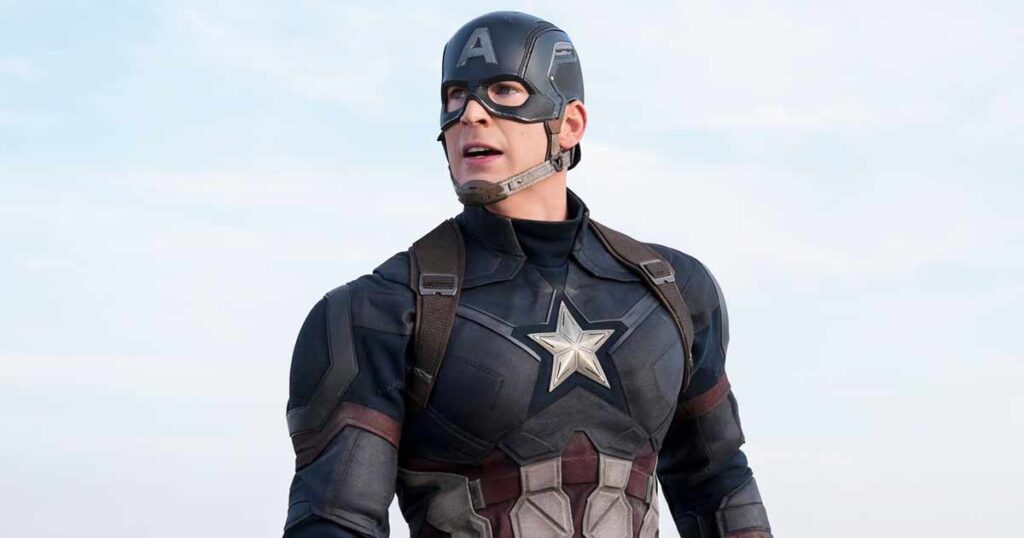Was Captain America wrong to go back in time in Avengers: Endgame? He created alternate timelines by snagging the Infinity Stones and living happily ever after with Peggy. However, as Strange noted, they had one shot to beat Thanos, and Steve’s journey was crucial to making it happen.
Tony Stark stepped up to create a time-travel machine, but he had one condition. He’d built a life over the past five years and wanted to preserve it. Instead of rewriting history, the plan shifted to collecting the Infinity Stones to bring everyone back to the current timeline. This meant saving Spider-Man (Tom Holland) while protecting Stark’s daughter. Simple, right? Well, not quite.
Captain America’s Quantum Quandary
The time travel mechanics in Endgame proved simple. The Avengers devised a plan using Pym Particles to shrink down and access the Quantum Realm. They hoped to navigate through time, scooping up the stones from various historical points. Captain America (Chris Evans), Iron Man, Hulk (Mark Ruffalo), and Ant-Man zipped back to New York in 2012 during the Battle of New York, where they sought the Mind Stone and Space Stone. But missteps happened—like Loki (Tom Hiddleston) slipping through their fingers with the Space Stone.
The stakes rose when Captain America and Iron Man had to jump further back to 1970, swiping the Space Stone from Tony’s father. But this act raised eyebrows. If they lifted the Space Stone, wouldn’t that derail Tony’s path to becoming Iron Man? Enter the Grandfather Paradox: alter your past; you may never exist. However, Endgame sidesteps this dilemma by introducing the Multiverse Theory. Changes in the past create alternate timelines rather than affecting the original.
In a nutshell, the Avengers faced a unique take on time travel. The Ancient One (Tilda Swinton) insisted they return the stones to maintain each timeline’s integrity. They could create branches but couldn’t break the timeline by leaving it without its stones. And Captain America did return the rocks—at least, that’s how it was supposed to go.
The Old Man and the Time Travel
Yet, Captain America’s return stirred up more questions. After dutifully returning the stones, he chose to stay in the past, enjoying a life with Peggy Carter (Hayley Atwell). This raised eyebrows. Did he create a new timeline, or was it part of a preordained fate? The implication was clear: Steve was always meant to be with Peggy.
In Captain America: The Winter Soldier, Peggy mentions a husband but never reveals his name. As she grapples with Alzheimer’s, she reminisces about Steve, hinting at the life they shared. Their reunion felt fated, an echo of their unfulfilled promises. The timeline remained stable as long as Steve avoided meddling with significant events.
By the film’s end, the old Steve remained a silent guardian, allowing the younger version to continue as the Avengers’ leader. As Doctor Strange hinted in Infinity War, the Avengers’ victory hinged on their choices. Old Steve likely refrained from interfering, ensuring that the one path to defeating Thanos remained intact.
In a universe filled with complex narratives, Avengers: Endgame offered a fresh perspective on time travel and fate. Captain America’s journey back in time brought joy but also raised profound questions about timelines, fate, and the sacrifices heroes make for love and loyalty. So, was Captain America wrong to go back in time? Perhaps not. Instead, he might have created a future where all paths led to love.
Follow Koimoi for more Bollywood and Hollywood updates.
Must Read: Was Jack Sparrow The Best Pirate, Or Just The Luckiest? Analyzing Pirates Of The Caribbean
Follow Us: Facebook | Instagram | Twitter | Youtube | Google News

